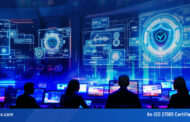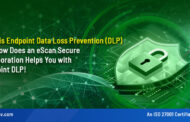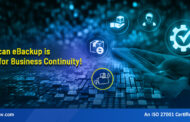Observed on the 28th of January every year, Data Privacy Day is an effort to empower people to secure their privacy, regulate their digital footprint and escalate the protection of privacy and data as a top priority for everyone. It also aims to create awareness of privacy and data protection issues among the consumers, organizations and various governments. The day helps in highlighting consumer privacy efforts.
Data explained:
In the language of computing and technology, any information that is translated into a form which can be efficient for movement or processing is called as Data. Although, in today’s modern world where “Data is the new oil”, it is also called as information connected in a Binary Digital format, while raw data is a term used to describe data in its basic digital format.
On this day, our experts wanted to share a few tips that would help with the Privacy of your own Data.
- Knowing the digital Topography: While the internet has emerged as a powerful tool for communication, one has to learn on the various ways on how to use the internet while keeping in mind the good and bad actors.
- Regular Software Update: By far the most common tip that a security professional will share and yet is ignored leading to disasters. Software updates are not only important from a functionality standpoint but from a security one as well. Since more often than not they contain critical security updates and vulnerability patches. Hence, it is advised to enable automatic software updates, wherever possible.
- Password Protection: Always change the password after every 45 days and use a strong alphanumeric password for all your online and offline accounts. Ensure the password is at least 8 characters long and has a mixture of upper and lower case letters, special characters and numbers. Use end to end encryption and two-way authentication wherever possible.
- Keep your life Private: With social media becoming a basic technological need for most of us, it is advised that to filter the information that one is sharing on the internet. In any case, avoid sharing any personal information on social media or on the internet. This information could be gathered through various means, like a website, survey form, online friend, or even unsolicited emails. It’s wise to keep your sensitive data, private and protected.
- Back up is a lifestyle: It is strictly advised to take back up of all the important data that resides on one’s computer and mobile phones. One can either take the backup overcloud or on an external hard drive. In case if you opt to back up your data on the cloud, please ensure that the cloud service provider is a trusted one. Taking regular and timely backups can save you from the aftermath of a cyber-attack or system crash.
- Encryption is the key: On contrary to popular belief, Data encryption is not only for enterprises, but it had also expanded to the end-users as well with various encryption tools now being available in the market. By making use of encryption, users can make sure that their sensitive data remains safe, even when it is accessed by threat actors. It is also advised to encrypt the data before it is copied to an external device to ensure an additional level of security.
- Delete/Archive Data Securely: The fact about data deletion is that no data that is stored on a physical storage device is ever deleted permanently. Data once deleted can be recovered with the use of advanced data recovery tools. Hence, while removing sensitive information ensure it is completely gone by wiping its free space. This also handicaps a threat actor and he won’t be able to hold the user’s data for ransom. Moving the data a user no longer requires an offline device is also advised along with deleting it forever.
- Say no to free or open Wi-Fi networks: Open Wi-Fi’s are criminal hotspots since various attacks like the man in the middle attack (MITM) can be carried out while the user is still unsuspecting. Hence, it is advised to avoid using an open network. If an open Wi-Fi is used, the user should ensure only visiting sites that have HTTPS enabled and access the network through a Virtual Private Network.
- Don’t bite the Phishing bullet: Users should be ever vigilant to ensure they don’t fall for cybercriminals and their social engineering techniques. Every minute the count for victims that fall prey to a phishing attack around the world is rising. In the past decade, the frequency of a phishing attack has risen since first being discovered in the mid-1990s. Attackers have been deceiving victims into sharing their personal information by means of emails and SMS’s which has only progressed to social media. Users can lose valuable information like credit card details and passwords in such an attack.
A few ways to avoid this are mentioned below.
- Check emails with caution, don’t open attachments which are present in an email from an untrusted source
- Only share information on a secured website
- Beware of banner advertisements and pop-ups
- Always check the URL of the website before logging in
- Check online accounts and bank statements regularly
- Use a good spam filtering Antivirus
- Report any suspicious activity online
- Always use a paid Antivirus: Chose Antivirus security that is secure, scalable, and reliable. The Antivirus should be a complete protector offering multiple layers of security that can block malware, ransomware, etc. Also, offers top-notch internet security, email solution, and a sturdy firewall.
Remember your data and privacy is part of your being. Stay secure.
To read more, please check eScan Blog







